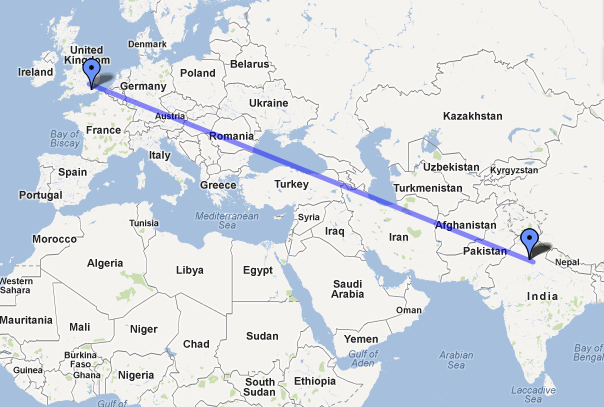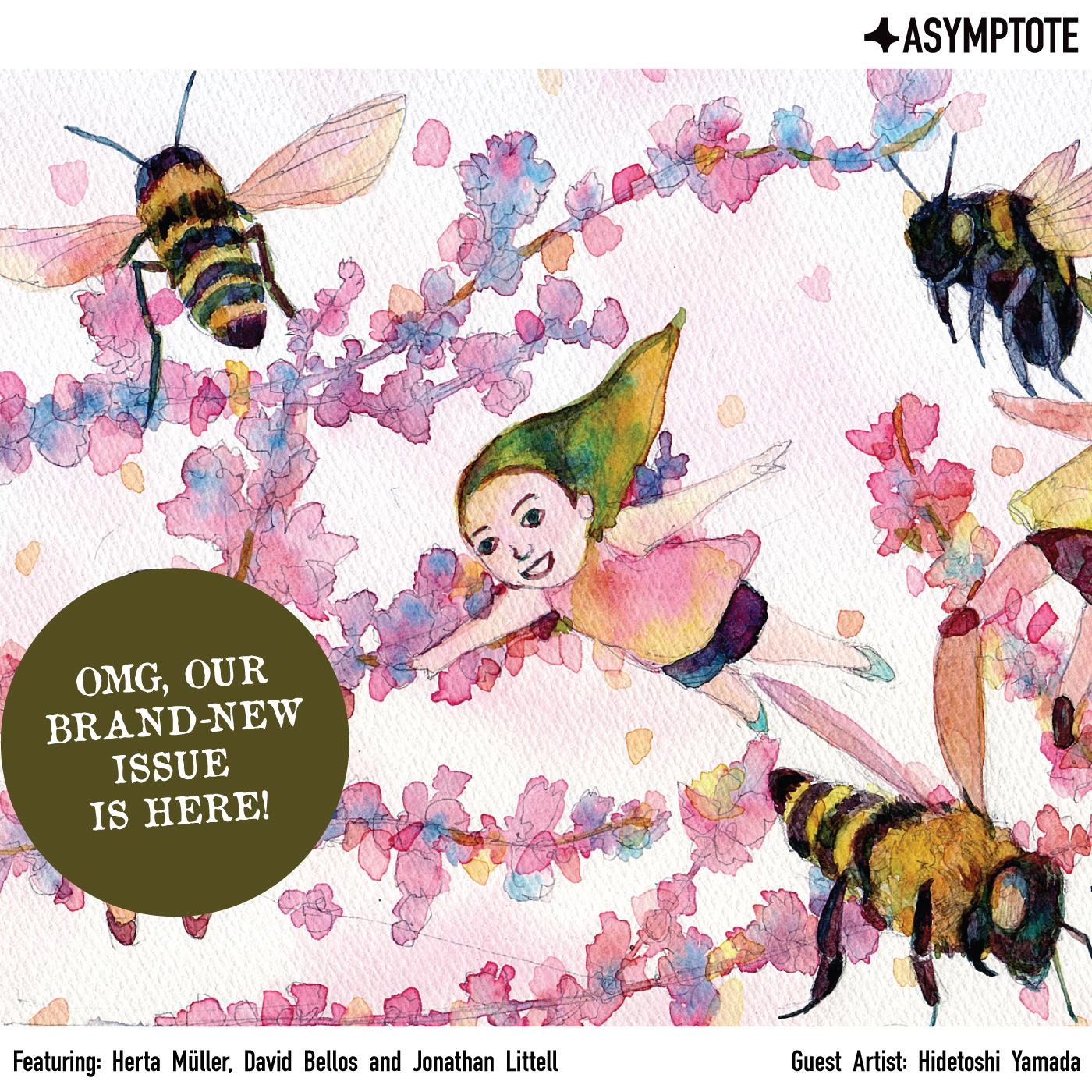Shortlisted for the Arabic Booker when it first appeared in 2011, Ezzedine C. Fishere’s Embrace on Brooklyn Bridge has already been reprinted eleven times. Ahead of its English publication on 1 April, we collaborated with exciting new publisher Hoopoe to present the excerpt below. Brimming with observation, this vignette provides a searing glimpse into the life of Egyptian diaspora coming to terms with a hyphenated identity.
Though he had spent five years in London writing up his doctoral thesis, he hadn’t met Jane there, but in Cairo, which surprised their small circle of friends. Jane was tall, slim, shapely, and beautiful, with long chestnut-brown hair, which she would either let hang around her shoulders or pin up with whatever was to hand, normally a pencil. She had come to Cairo for a year to learn Arabic, on some scholarship or another. She grew to love the city in all its chaos and ended up settling there. They gradually got to know each other, and grew closer until they ended up more or less living together in an apartment in Giza, behind the zoo.
The thought of marrying Jane had occurred to him early on: she had many of the qualities he sought in a partner. But something about her unnerved him, so he didn’t tell Leila or Youssef about her until he was sure of their relationship.
He traveled with her to Britain to visit her parents, who lived on the outskirts of Glasgow. They walked to the riverbank where she had played as a girl, gazing across the endless pastures. She took him to the local pub, where throngs of young men had pestered her as a teenager. And they met all the neighbors who wanted to see “this Egyptian Jane has fetched back.”
Jane was a good-hearted, decent sort of person, but her relationship with Egypt was confused. She told Darwish when they first met how much she loved the Egyptian people’s good-naturedness, and their warmth and humanity. She found something in them that she had felt lacking from her life in Britain. He laughed to himself, being someone who actually loved the cool standoffishness of the British, finding in their respect for privacy something he lamented as sorely missing from Egyptian life. They found themselves in reversed positions, as he criticized she defended Egyptian life and people: “Yes, she is lying. From a legal point of view, she’s lying. But it’s not a real lie”; “This is not a weakness, it’s caution”; “No that’s not nepotism, it’s really just an expression of gratitude”; “It’s absolutely not a class thing; it’s a different view of roles and responsibilities.”





